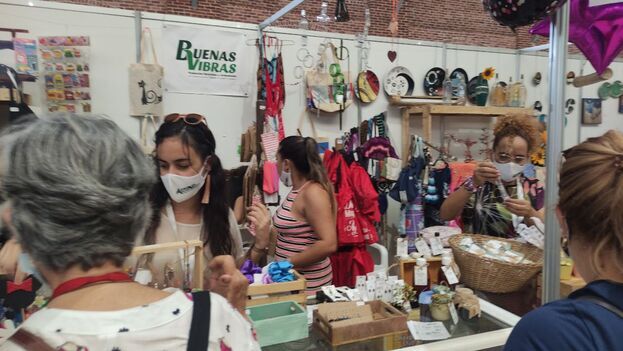
![]() 14ymedio, Havana, 31 March 2023 — Putin’s adviser has a plan for Cuba that specifically involves ending the “strict control” over currency exchange. The consequence of this disastrous government policy is “the low profitability of companies, the deficit of commodities” and the black market, according to Boris Titov, president of the Cuba-Russia Business Council, as the Russian news agency Sputnik reported on Thursday.
14ymedio, Havana, 31 March 2023 — Putin’s adviser has a plan for Cuba that specifically involves ending the “strict control” over currency exchange. The consequence of this disastrous government policy is “the low profitability of companies, the deficit of commodities” and the black market, according to Boris Titov, president of the Cuba-Russia Business Council, as the Russian news agency Sputnik reported on Thursday.
In an interview with Sputnik, Titov reveals some details already intuited in previous meetings and statements, such as that Russian economists have proposed to the regime to develop small and medium-sized enterprises, known as mipymes [SMEs] in Cuba, fundamentally through a fiscal reform that lets the informal economy emerge.
“Economic reform can and should be promoted by small and medium-sized enterprises. In Cuba, SMEs are equivalent to private companies, since the state controls all strategic areas,” Titov told Sputnik.
Currently, the adviser to the Kremlin adviser — and, for practical purposes, also the Havana regime — said that the private sector contributes 7% to the Gross Domestic Product (GDP) and 11% of the tax revenues, in addition to employing a quarter of the country’s workers (1,600,000 according to the latest data from the Ministry of Labor, compared to 3,160,000 linked to the state sector).
“They face many problems: the difficulty of accessing credit, high taxes, problems with the rate of return due to the prices of some goods, which are fixed by directives, and the price of other goods, limited by low wages in the public sector. In many ways, Cuban SMEs are in the shadows,” Titov emphasizes.
The expert believes that making the tax system more flexible can help the private sector emerge and give the expected results, which are none other than an increase in the production of food and basic products, but he recommends that it not be carried out in a crazy way, unlike how it happened, in his opinion, in his country.
“Unlike the ’shock therapy’ that took place in Russia, the transition to a free price formation in Cuba must be carried out gradually, and it has to be well prepared,” the counselor adds.
In January of this year, Cuba and Russia agreed to create an Economic Transformation Center during a meeting between Titov and Miguel Díaz-Canel. The objective, according to the Russian agency Interfax, was to prepare “economic transformations in Cuba based on the development of private enterprise.”
This idea was described from the Cuba Siglo XXI center of ideas, based in Miami, as an attempt to go from a “model with a nationalized economy” to the “Russian mafia market” scheme.
To date, the SMEs that have been created in Cuba total 7,325. However, the government’s claim to prioritize food production companies has been surpassed by reality, and in practice, according to the latest data, only 15.3% are dedicated to it, being surpassed by locals or food stores, which exceed 19% of the total. On the other hand, the service sector is confirmed as a leader, with 45% of SMEs, while the category “other productions” remains at 21%.
All this, despite the fact that the state has controlled not only the sectors that were going to have preference for activity, but who was given the authorization, with the result of a multitude of businesses in the hands of relatives and friends of senior officials, as well as foreign businessmen well-linked to the regime.
Earlier this week, Titov also announced two new projects with Cuba in Moscow. The first, the creation of Rusmarket, a joint venture of food, chemicals and other household items with the Cuban state-owned Cimex whose contract is in the process of being signed. The second is yet to be specified, but there was talk of a hotel for the exclusive use of Russians, arguing that Russian tourism is returning to the Island, a fact belied by all the official data.
Translated by Regina Anavy
____________
COLLABORATE WITH OUR WORK: The 14ymedio team is committed to practicing serious journalism that reflects Cuba’s reality in all its depth. Thank you for joining us on this long journey. We invite you to continue supporting us by becoming a member of 14ymedio now. Together we can continue transforming journalism in Cuba.
